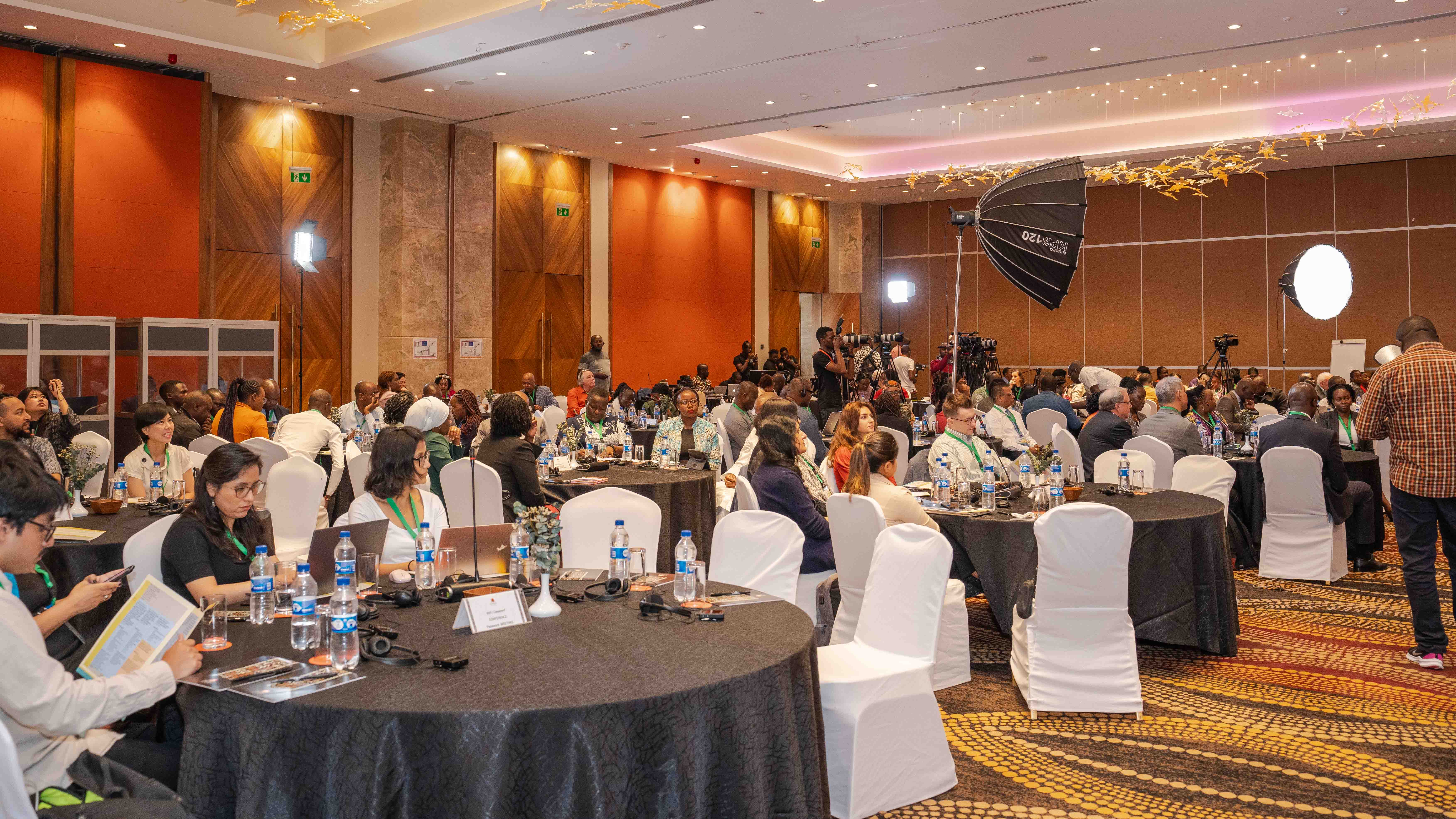
Experts call for urgent action on gender inequities in health and work
Experts attending the Women RISE Initiative’s end-of-project meeting in Nairobi say economic and health burdens disproportionately borne by women must be addressed through urgent policy action.
Monday’s high-level event convened 120 researchers, policymakers, and global health from 23 research teams across 16 countries. They focused on the intersection of women’s health and work, with a particular emphasis on crisis preparedness and recovery.
“As the ministry responsible for gender affairs in Kenya, we remain committed to ensuring that the insights gained here today contribute to national policies and initiatives that empower women and promote gender equality,” said Anne Wang’ombe, Principal Secretary in the State Department for Gender and Affirmative Action in the Ministry of Gender, Culture, the Arts and Heritage in the Republic of Kenya. “This initiative is not just about research, it is about action, ensuring that the voices, challenges, and needs of women are at the forefront of policy and development.”
Wang’ombe said that the Kenyan government has established affirmative action funds such as the Women Enterprise Fund and the National Government Affirmative Action Fund, among others, which provide financial support to women, thereby enabling them to access funds for startups or to grow their business ventures without burdensome conditions.
The initiative, led by the African Population and Health Research Center (APHRC) and Aga Khan University Graduate School of Media and Communications (GSMC), has supported global research into women’s health and economic challenges, with a focus on unpaid labor, caregiving, and employment vulnerabilities.
Christopher Thornley, Canada’s High Commissioner to Kenya, agreed.
“Supporting gender equality and the empowerment of women and girls is the best way to build a more peaceful, inclusive, and prosperous world. Achieving gender equality and supporting women’s empowerment are ends in themselves and have a high impact on progress toward all of the Sustainable Development Goals.”
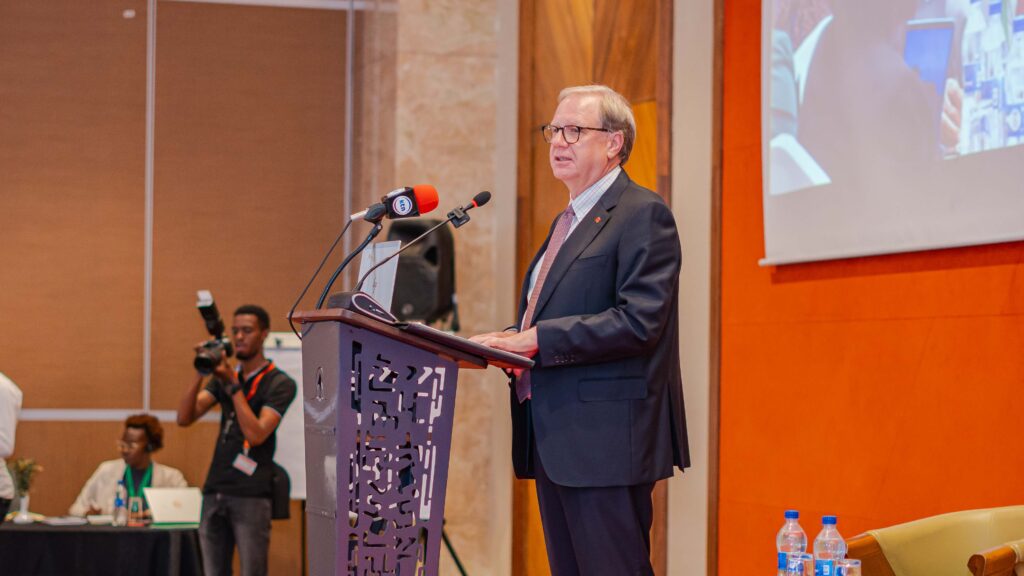
Findings and Policy Implications
The workshop showcased Kenya’s four Women RISE-supported projects, which align with the government’s priority areas: Economic empowerment, access to quality healthcare, and gender equality.
Research from the COHESU Community Health Support Program and the University of Waterloo in Kisumu highlighted how the pandemic deepened gender disparities in employment and caregiving.
A study by the Co-operative University of Kenya and the University of the Fraser Valley demonstrated how agricultural cooperatives in Kiambu, Kajiado, and Taita Taveta helped women rebuild their livelihoods.
In Trans Nzoia, a study by Moi University College of Health Science, and the University of British Columbia examined the role of microfinance in boosting women’s resilience.
Meanwhile, research in Kilifi by Aga Khan University and the University of Manitoba focused on women’s economic vulnerabilities during health crises.
African Population and Health Research Center Executive Director Catherine Kyobutungi urged for more transformative change in a sustainable way in the lives of the women and children so that the health and well-being of women around the world “is not dependent on the wings of an electorate many miles away”.
“This research has provided catalysing results that will drive decision making which will lead to transformative change. As an African institution leading a global initiative with partners across the world, we are proud to have brought together this global consortium.” Kyobutungi said.
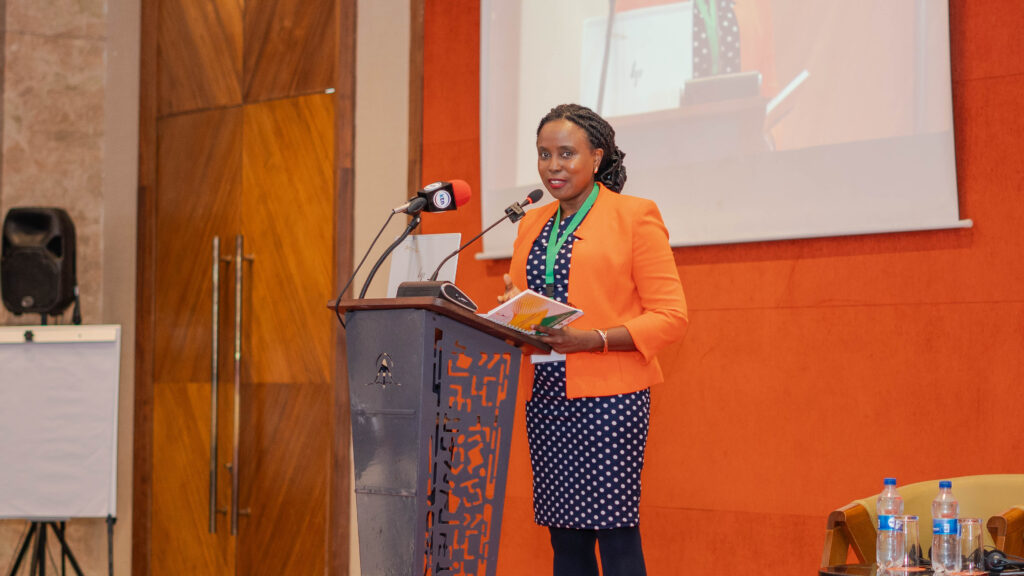
Catherine Kyobutungi, the Executive Director of the African Population and Health Research Center (APHRC), gave a speech during the Women RISE end-of-project workshop on Monday, February 4, 2025, in Nairobi, Kenya. (Photo: APHRC)
Nancy Booker, Dean Graduate School of Media and Communications, Aga Khan University, said the school’s role in supporting the documentation and highlighting the work the research teams have been doing has been profound.
“We have been helping to deconstruct the research by making it palatable for different stakeholders in the various geographies and documenting the research work which provides great credibility to the work that has been done.”
The 2021 Time Use Survey by the Kenya National Bureau of Statistics revealed that women spend at least three hours and 36 minutes more than men on unpaid care and domestic work, leading to significant impacts on their health, access to healthcare, and overall well-being. This limits their access to healthcare and increases stress and fatigue.
A global and regional perspective
African experts emphasized the need for action-driven policy shifts. Bernard Abudho, COHESU Project Manager, presented data on financial interventions that support women’s economic resilience.
“We need policy and practice that gives recognition of women’s unpaid work, unrelated contributions to local economies, and the recommendation for reduction that is crucial through evidence in companies and practice,” he said.
Nelly Vuyokazi Sharpley from the University of KwaZulu-Natal, South Africa, highlighted the overburdening of family and community responsibilities for women.
“Elderly women are the ones that are taking care of children, younger children in the space and more dependent on social grants, and which creates vulnerabilities for them and not really realized in terms of what they can get to develop their resilience and economy. But it’s more burdening them in terms of surviving, because the unpaid care work is more now, instead of them being involved there as a function that contributes to them. You find that because of the demand of the family and threats around the community and the demands of the community, it becomes a negotiated space.”
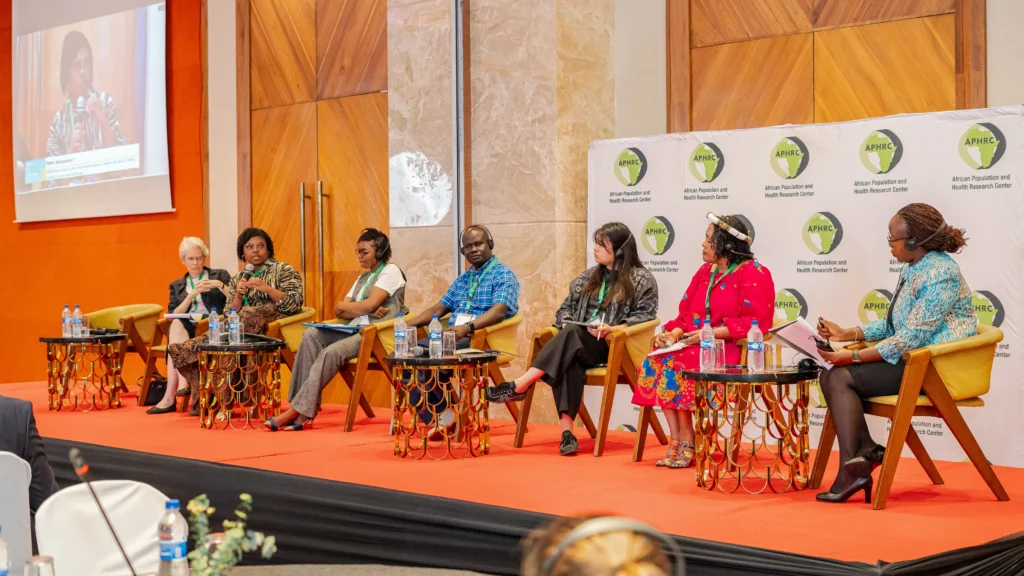
Nigerian health policy expert Johnson Dudu said most of their participants were women. Also, “most of them lack access to basic economic empowerment, such as land. They lack access to credit facilities, which more or less limits their access to financial resources,” Dudu said.
The Aga Khan University’s Graduate School of Media and Communications Research Lead and Faculty, Hesbon Owilla, emphasized the role of engaging government structures, “Sustainability models entail engaging with different government structures. As you can see, these are five different countries, so that conversation still needs to go on.”
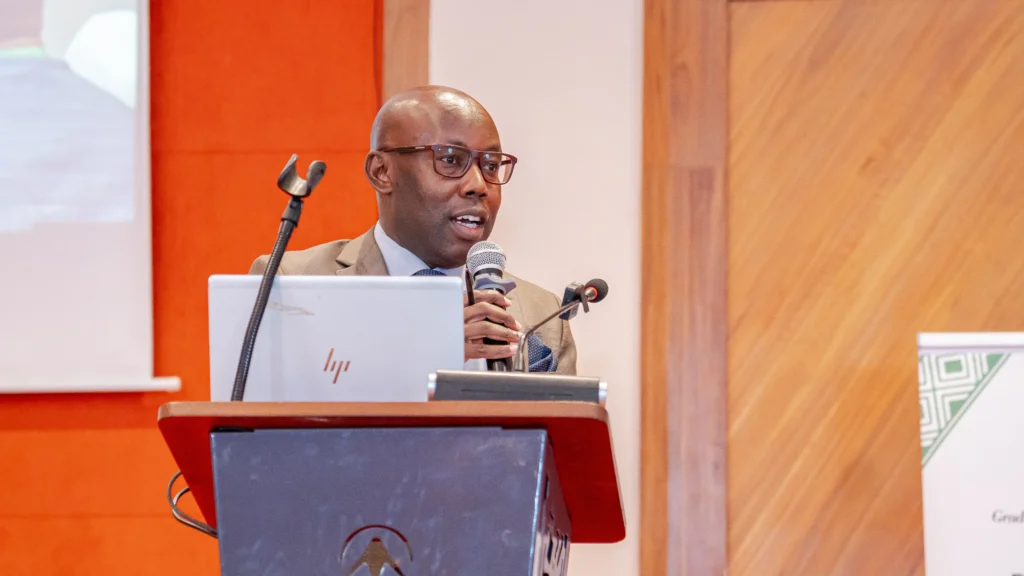
“Funding scientific cross-sectoral collaboration and evidence is important in advancing policies based on evidence. This initiative has been imperative in providing context-specific solutions when it comes to the interface between women’s health and work, both paid and unpaid pre and post the COVID-19 pandemic,” said Montasser Kamal, Director of Global Health, IDRC.
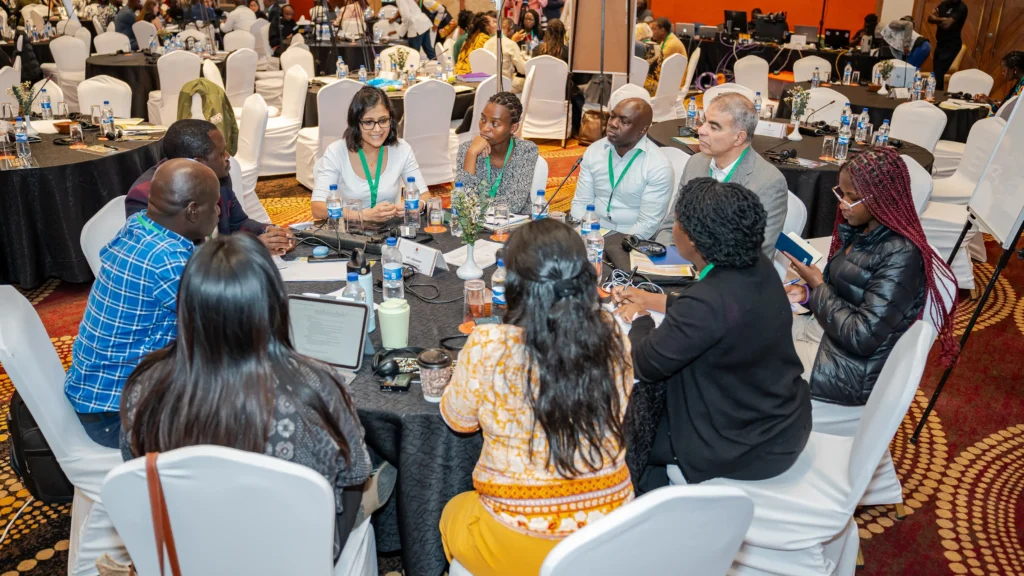
As discussions continue for the coming days, the focus will be on translating research into concrete policy recommendations. The insights gathered will inform Kenya’s National Care Policy, which seeks to address the longstanding issue of unpaid domestic and care work. The policy is awaiting Cabinet approval and aims to challenge traditional gender roles while ensuring fair compensation for care work.






